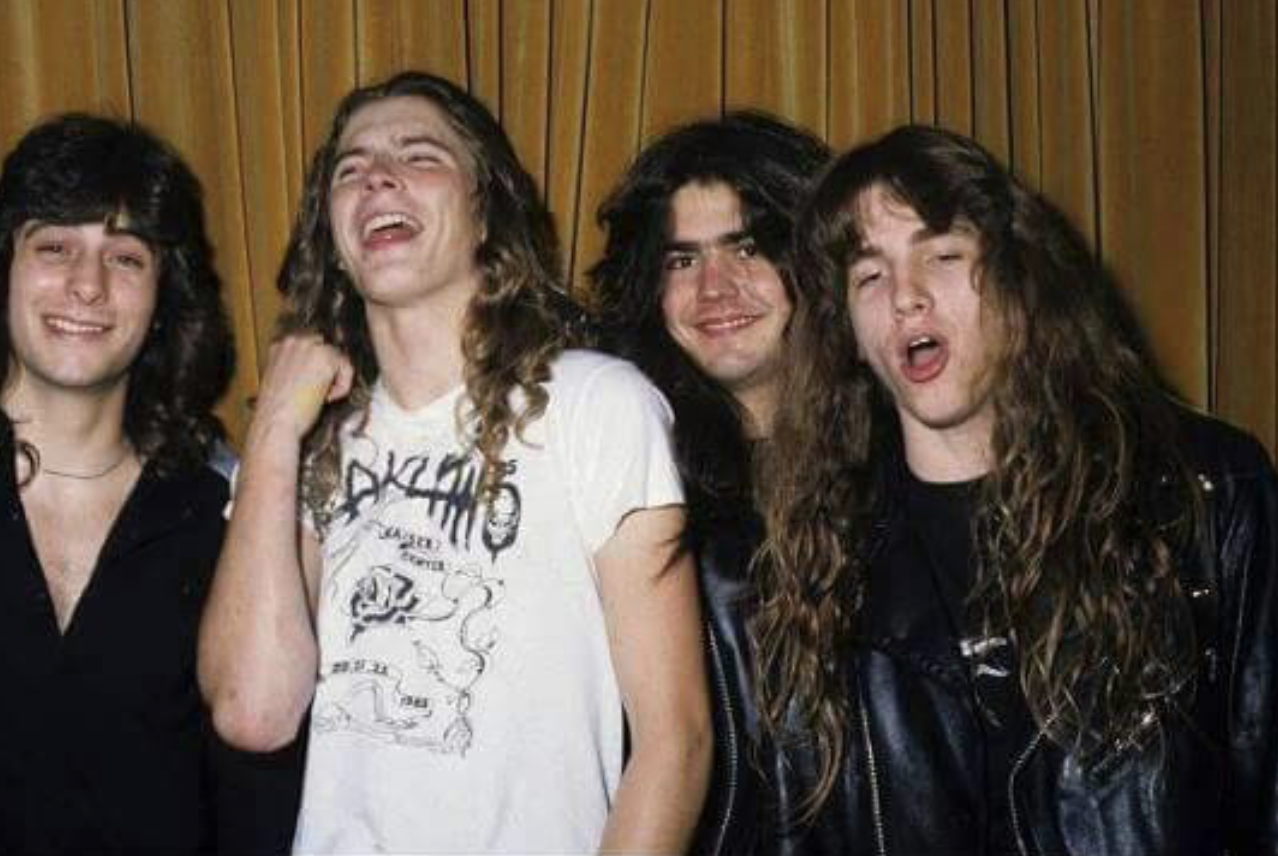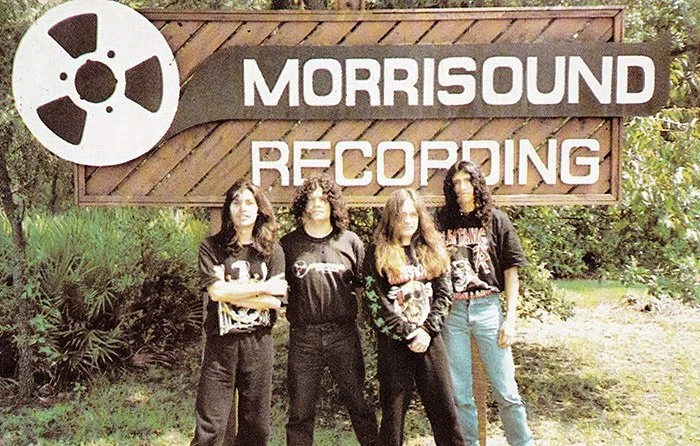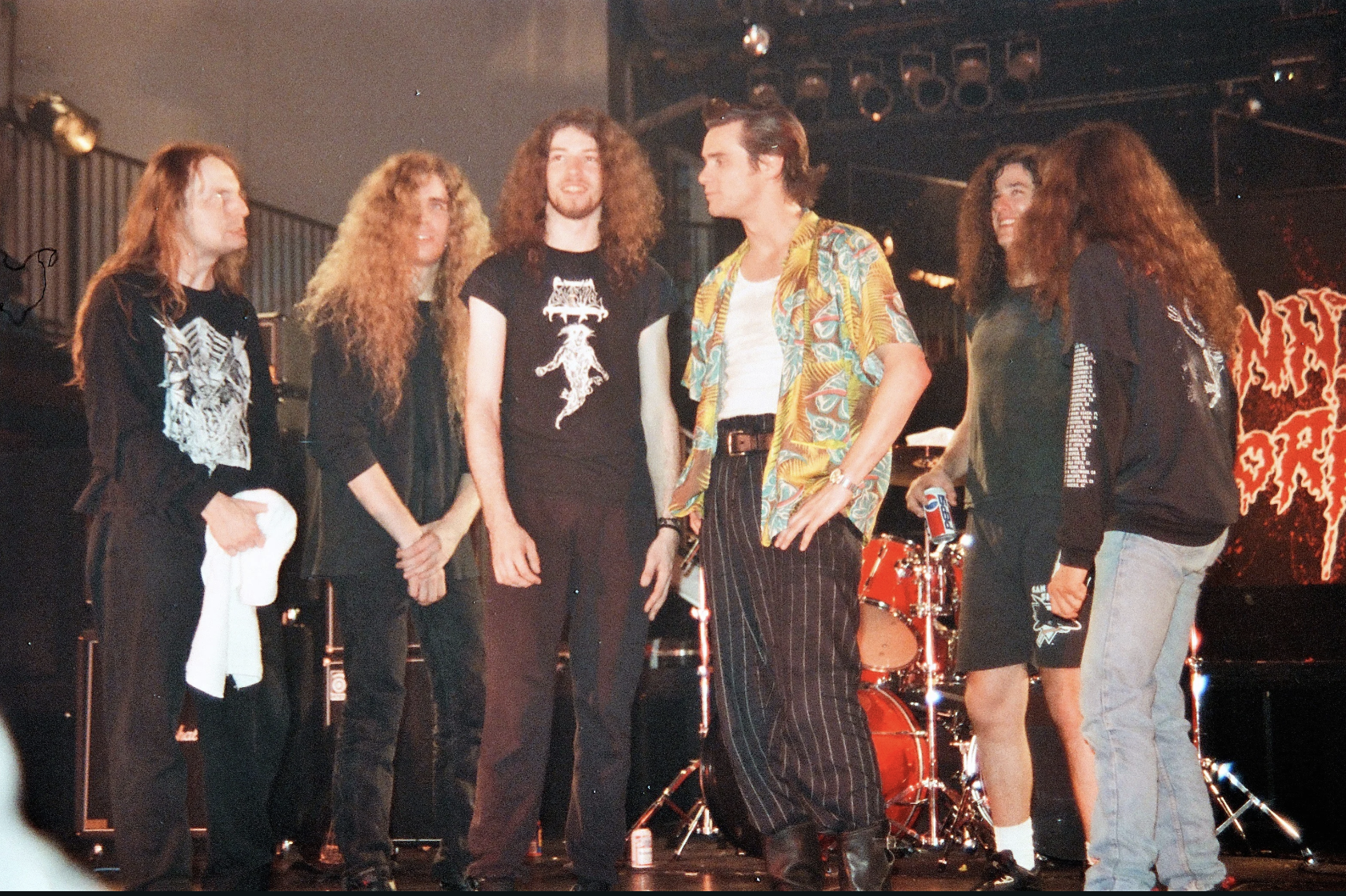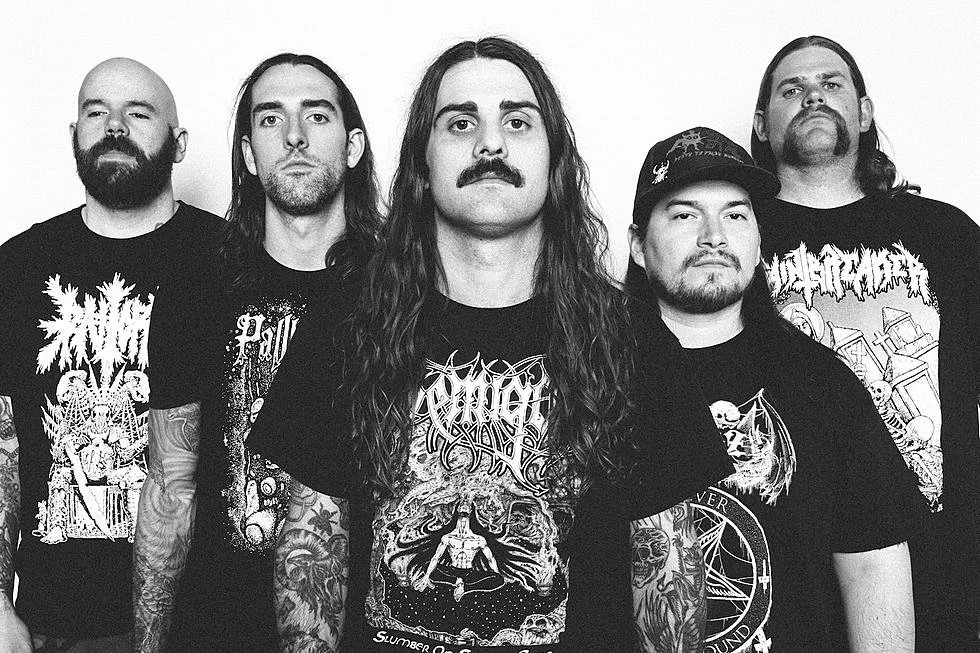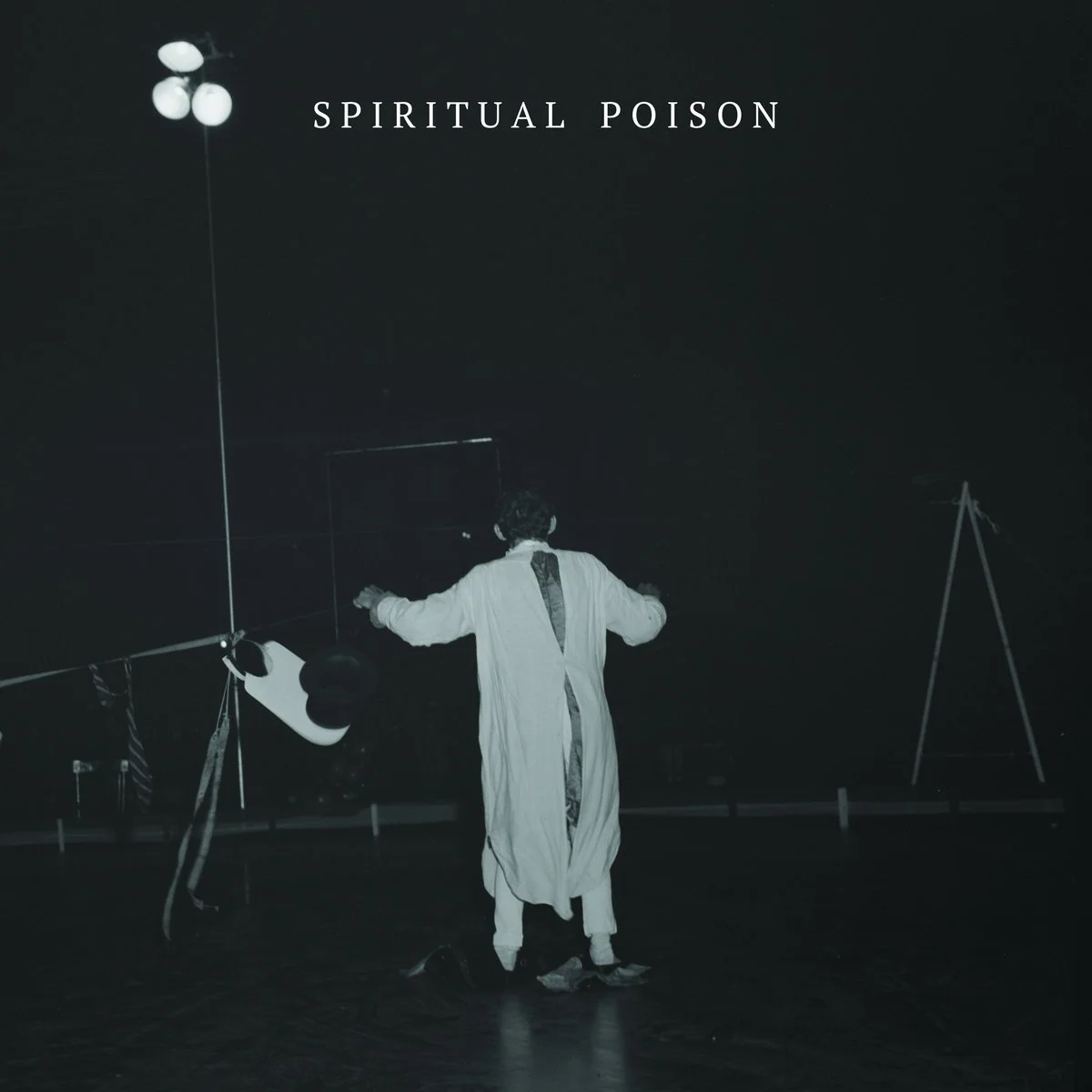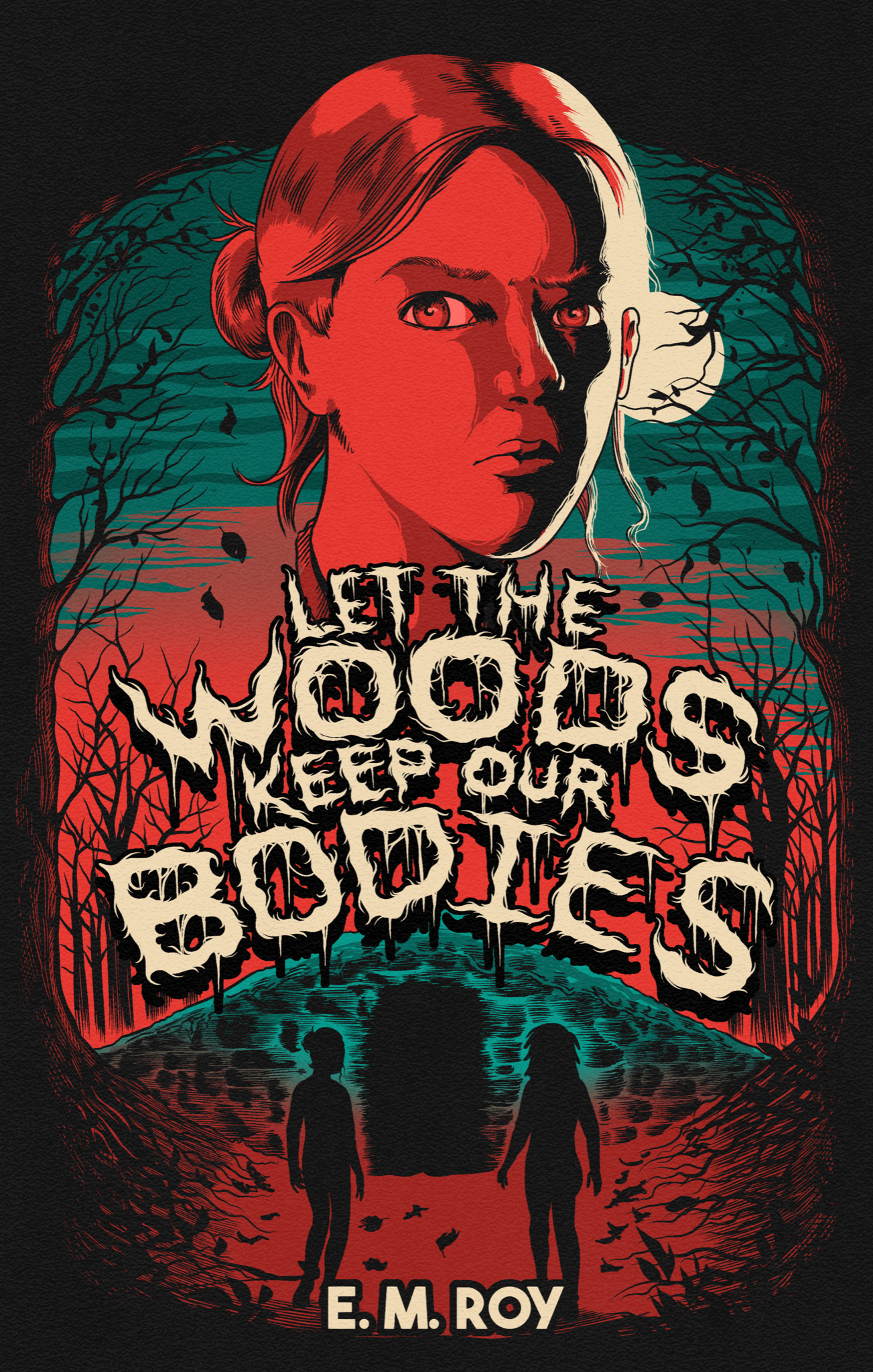A Subjective History of Death Metal
"Who invented death metal?" is one of the most hotly debated questions in extreme music.
We’ll discuss it further down, but let’s not kid ourselves: no one was struck by lightning one day and "invented" death metal. The first iterations of the genre were just thrash metal bands trying to push the sound both to its creative and physical extreme. This arm’s race to audio brutality started with the transition from thrash metal to death metal, but that dynamic would become foundational to the creation of every other extreme metal genre starting from there. A lot of what extreme music eventually became was caused by psychopaths trying to outdo one another.
Now, death metal is widely considered serial killer music in pop culture. The extreme of the extreme. The most violent and artless form of music possible. Some of us know that it’s not true at all anymore, but it definitely was at some point in time. Death metal pioneered so many important components of extreme music: growling vocals, gore imagery, blast beats, etc. But for the practitioners and enjoyers of this style of music alike, it would end up being a gateway drug into bolder and more complicated (sometimes more abstract) ideas.
Today, we’re not gonna delve into melodic death metal, brutal death metal, technical death metal, death doom or other subgenres. They’re going to get their own chapter of his apocryphal history. This is where it’ll get fun for me, to be honest. We’re going to address here conventional death metal, which is also called now OSDM: old school death metal. Where it started, how it evolved and where it’s going today. Because it is, I believe, still today one of the most important and creatively pertinent extreme metal styles.
Jeff Becerra, Chuck Schuldiner and the Birth of Blergh
If you want to be chronological about it, the words "death metal" were first uttered together in 1984 by the Californian thrash metal band Possessed on their three song demo titled Death Metal. Because of that, Possessed are widely considered to be the founding fathers of death metal and I guess this is accurate?
But here’s the thing. The two most important genres of extreme metal were basically invented by bands who were trying to play a less extreme genre, but with bad vocals and bad production. No disrespect to Possessed frontman’s Jeff Becerra who’s still rocking out today even if he’s in a freakin’ wheelchair, but the song Death Metal sounds more or less like Venom’s song Black Metal, which is also thrash metal with bad vocals and bad production.
Evidence #1, Black Metal:
Evidence #2, Death Metal:
This doesn’t sound like the same song, but doesn’t it sound like it could be on the same record? I don’t want to disown Possessed of their dues, but a lot of these early death metal bands were trying to play thrash metal. Paul Mazurkiewicz from Cannibal Corpse was claiming in an interview that Slayer was the biggest influence on him. That when he heard Dave Lombardo play on quintessential album Reign in Blood, that he understood how he wanted to play from that moment on. Before it was a musical aesthetic, what would become death metal was propelled by a desire to play as fast and furiously as humanly possible and an exploration on dark and occult themes that would become common ground in the genre as a whole.
So, I guess Possessed conceptualized death metal. Musically, I believe the first death metal record is Scream Bloody Gore, by Florida’s own Death. It happened three years later in 1987. That was the big "oh shit!" moment that made everyone else want to do the same thing. Chuck Schuldiner is not with us anymore to stake his claim at death metal fatherhood (he hasn’t been for a while, he died of cancer in 2001), but you can see how the argument occurred. Was death metal invented by the band who wrote the song death metal or by the type of metal played by the band Death? To me, it’s not even an argument. I mean listen to this:
One is clearly more chuggy, intricate and atmospheric than the other. There was a richness and a creativity in Chuck Schuldiner’s guitar riffs that was completely fucking new. It was a different animal. It was also the first occurrence I know of the growl as an undebatable artistic choice. It was a record about death and the underworld and zombies and Schuldiner chose to embody his ideas by sounding like a monster. It would be a turning point for what was about to come. Schuldiner did quote Possessed as a massive influence, though. But he took their ideas and created death metal with it.
Morrisound Studios and the Boogeymen from Florida
I mentioned earlier that Death was from Florida. It’s where the first ever death metal scene would blossom. Several death metal bands from the first wave also are from Florida and others have eventually relocated there: Obituary, Morbid Angel, Deicide, Six Feet Under and eventually Cannibal Corpse (who are originally from Buffalo) would set up shop in Tampa. No, stoned teenagers did not accidentally conjure Satan during a black mass in Florida to make this happen.
All these bands congregated around a quintessential place in the creation and popularization of death metal: Morrisound Studios.
Now, I know what you’re wondering: did Morrisound create death metal or did it happen to be the only place that understood how to record what was at the time a groundbreaking sound? I don’t have any clear answers to give you, but I don’t believe that death metal would’ve become death metal without Morrisound. If Death recorded their first album Scream Bloody Gore in Los Angeles, they would record the rest of their discography at Morrisound, triggering somewhat of a chain reaction. Death would evolve into a more progressive, thinking man’s death metal starting with their fourth album Human in 1991, but the band left a trail of Satan-loving cavemen in its trail.
The most important and influential of them is, without the shadow of a doubt, Morbid Angel. A slick and technical quartet that would later turn into a power trio and release some of the most influential death metal albums of all-time : Altars of Madness, Blessed Are The Sick and Covenant, which would tremendously influence death metal’s guitar riffing, drumming and Occult imaginary. Their drummer Peter Sandoval is notably renowned for being a forefather of the blast beat, a signature death metal drumming technique. Morbid Angel would also be extremely influential on the death doom hybrid genre with songs like God of Emptiness.
Deicide are another pivotal band from the Morrisound group. I’m going to get into greater details about them in the brutal death metal chapter because they were extremely important in pioneering the sound with their early record Legion, which I believe is still today one of the best death metal records ever made. The band evolved into a more traditional death metal sound starting with their breakout record Once Upon the Cross, but they always had more muscle and negative energy than their contemporaries and were key figures in establishing Satanism as a hallmark of death metal themes.
Cannibal Corpse and the Other North American Scenes
I’m not going to address early European death metal for one important reason: exceptions aside, early European death metal is melodic death metal. The genre will get its own article. But that doesn’t mean that old school death metal was strictly a Floridian phenomenon, though.
There was the New York scene pioneered by bands like Cannibal Corpse and Suffocation. We’re going to get deeper into it in the brutal death metal and slam articles, but the New York sound was less technical and solo-oriented, but groovier and more uncompromisingly brutal. Although they would move to Tampa and eventually hybridize their sound, Cannibal Corpse pioneered and popularized gory, horror movie themes and the deliberately ugly tones that made death metal feel dangerous and exciting. They were also made famous by featuring in Ace Ventura: Pet Detective.
Among other important bands were Incantation, originally from New Jersey but who relocated two or three times in their career. They stood out by not being afraid to slow down the tempo of their songs and for their recordings that sounded even uglier than Cannibal Corpse. On their fourth full length album Diabolical Conquest in 1998, they recorded a sixteen minutes-long song. That was unheard of then. Immolation are also historically important for incorporating dissonance into their sound, which would have implications above and beyond the confines of death metal. They were also seriously Satanic dudes at some point. Several war, doom and black metal bands cite Immolation as influences.
Last, but not least: there also was a strong Canadian scene. Cryptopsy is the most influential Canadian death metal band of all-time. Their sound would be pivotal in the creation of technical death metal and brutal death metal aesthetics. They’re more of a technical death metal band today, though. Without their theatrical frontman Lordworm, it became pointless for them to play the boogeymen card. Gorguts is the other important old school death metal band from Canada. They are a foundational band for death doom and progressive death metal.
OSDM: Return of the Living Dead
Death metal is alive and well today. There are several young bands working today: Sanguisugabogg, Gatecreeper, Tomb Mold, Hath, 200 Stab Wounds, Frozen Soul, etc. To be honest, they’re all awesome and they all could’ve been contemporaries of the pioneers even though they’re not likely to win medals for originality. This new generation of bands prides themselves in precision and reliability more than it does for breaking new ground and it’s perfectly fine. A lot of older bands are like that, too.
It makes a lot more sense to me live than it does in my headphones, but that’s just me. Death metal (at least in its original form) is kinetic music at heart. It’s made to mean mug and mosh to.
Today, death metal has become somewhat of a canvas for bands to paint on too. If their sound has growling vocals, blast beats and big, chuggy guitar riffs, you can incorporate elements from other genres in there and create something unique. Death metal has become one of the most hybridized genres in extreme music. That’s why this article isn’t that long. Because the genre exploded into dozens of subgenres and I’m going to get into each and everyone of them. Few bands stopped at death metal. It was an important, but transitional moment in the arms race to audio brutality. A lot of bands have gone a lot further.
Without further ado, here are five songs to help you understand how death metal is any different from brutal death metal, technical death metal or slamming brutal technical death metal. Because it does sound different:
Death - Zombie Ritual: In my opinion, the birth of deliberate harsh vocals. Death would undoubtedly become more complex with time and maturity, but you can already hear how it technically separates itself from thrash metal on a song like Zombie Ritual.
Morbid Angel - Chapel of Ghouls: That drum! Listen to that freakin’ drum! The production is also class Morrisound. It emphasizes the thickness of the guitars and the texture of the vocals, giving death metal its creepy aura.
Cannibal Corpse - Mummified in Barbed Wire: A thicker, groovier cut than your typical Floridian sound. Corpse could play fast, they could be technical, but they were always at their best when they got groovy. They have a girth to their sound that no one else could ever capture.
Incantation - Unholy Massacre: FUCKING LISTEN TO THIS. JUST LISTEN TO IT. Isn’t it the slimiest, most repugnant sounding death metal you’ve ever heard? Incantation were and are still great for that reason. They sound like fucking subterranean creatures. I love them for that.


